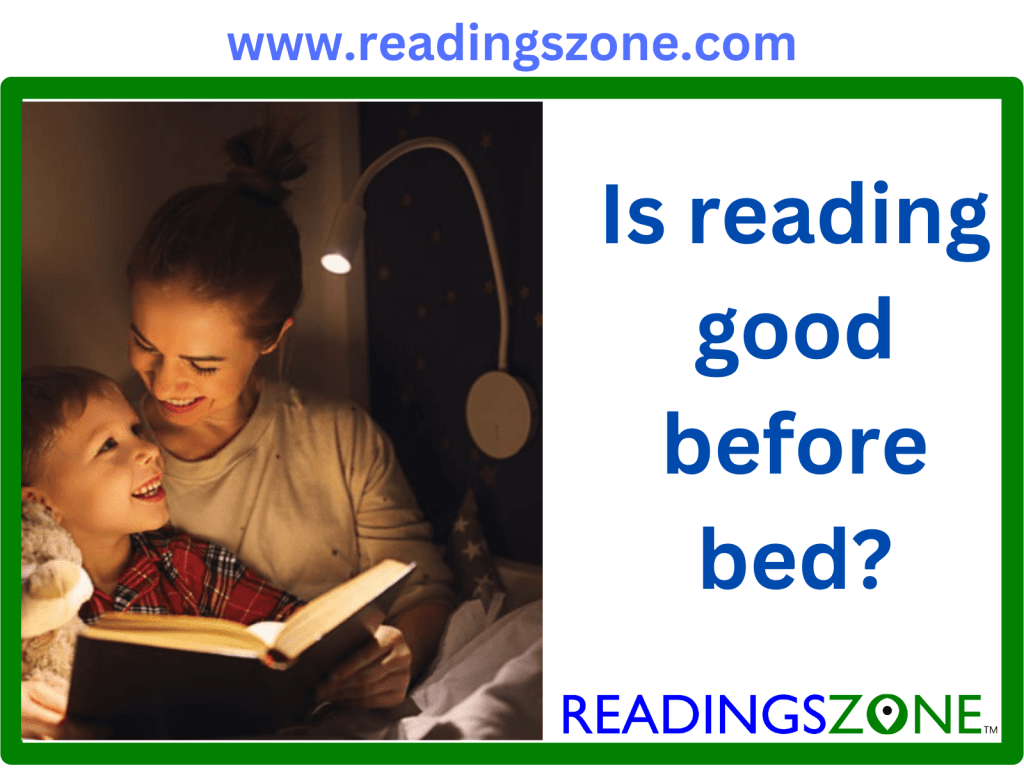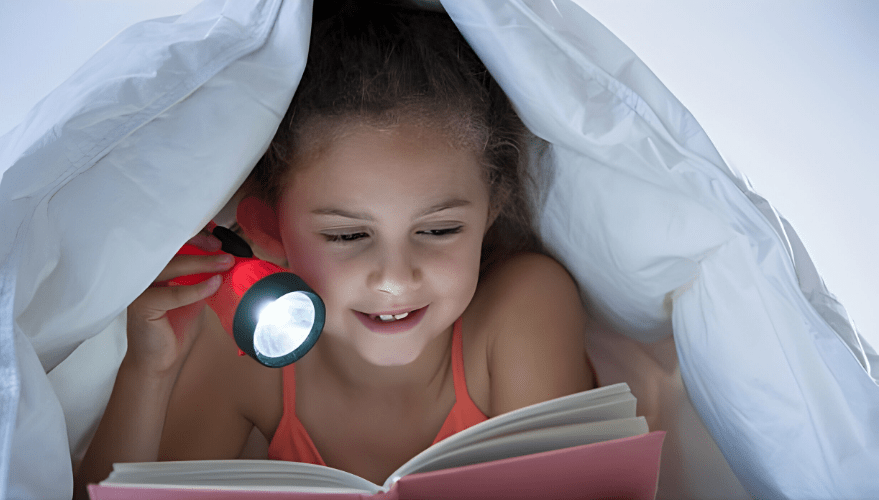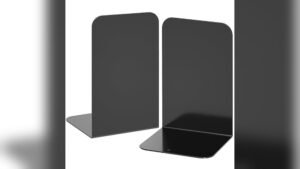Is Reading Good Before Bed? An Exhaustive (and Exhausting) Analysis

Table of Contents
ToggleBedtime reading is the perfect tool to fight off sleep’s tricky interruptions. We’ve sifted through countless studies and expert opinions. What’s the answer? Absolutely, it’s a total game-changer. Please set aside your glowing screens. Pick up a real book. Choose peaceful tales instead of heart-pounding thrillers. Stress disappears quickly, just like ice cream on a sunny afternoon. Your mind relaxes. When is the perfect time to relax? Now it’s pure joy, way better than any dull app noise. A thrilling story can keep you awake now and then. So, what’s the bottom line? Reading is your superhero cape for sleep.
Tonight, switch your endless scrolling for some cozy reading. Fall asleep with ease. Start your day feeling renewed. Have a good night, champ. If you’ve laid in bed for hours and can’t sleep, you might wonder, “Is reading before bed a good idea?” Here’s the insider information, the detailed explanation, and the bedtime story you didn’t realize you needed to know earlier!
The Battle for Bedtime: Netflix vs. Novels
There’s a showdown happening in bedrooms worldwide: On one side, the glaring screen of Netflix, tempting us with one more episode of “Just Five More Minutes.” On the other side, a dusty bookshelf of unread literature, whispering tales of adventure and wisdom. Why does choosing between the two feel like picking a favorite child?
Also, explore which you should prefer iPad vs Kindle reading.
Why Reading Helps You Sleep (Or Does It?)
Before we delve into the complex language of science, let’s clarify one point: reading promotes sleep, but not all reading materials are created equal. If you dive into a nail-biting thriller, chances are your adrenaline will be pumping faster than a caffeine-fueled espresso machine. On the other hand, a lighthearted novel or self-help book can gently soothe your tired eyes.
Research has shown that reading before bed can help you relax and reduce stress, making it easier to catch those elusive Zs. But it’s not just about what you read; it’s also about how you read it. Reading from a bright screen full of those dreaded blue lights can have the opposite effect, telling your brain it’s party time when it should be winding down. So, if you want a bedtime story, go old-school and grab a physical book or an e-reader with a non-illuminated screen.
Is Reading Good Before Bed?

Pic credit: istock
You’ve probably heard that reading is an excellent way to relax and unwind before bed. But is it true? And if so, why?
In this article, we’ll take a closer look at the science of reading before bed and see if any evidence supports the claim that it can help you sleep better.
Does Reading Help You Sleep?
There is some evidence to suggest that reading can help you sleep better. One study published in the journal Sleep Medicine found that people who read for 30 minutes before bed fell asleep faster and had better sleep quality than those who did not read.
The study also found that people who read before bed had lower levels of cortisol, a stress hormone, and higher levels of melatonin, a hormone that helps you fall asleep.
Another study published in the journal Pediatrics found that children who read for 20 minutes before bed had better sleep quality and fewer sleep problems than children who did not read.
The study also found that children who read before bed had higher melatonin levels and lower cortisol levels.
Is Reading in Bed Bad for Sleep?
There is debate over whether reading in bed is terrible for sleep. Some people believe reading in bed can lead to sleep problems, while others think it can help you fall asleep.
Some evidence suggests that reading in bed can lead to sleep problems. One study published in the journal Sleep Medicine found that people who read in bed were more likely to have difficulty falling asleep and staying asleep than those who did not.
The bottom line is that there is no definitive answer to whether reading in bed is terrible for sleep. Some people find it helps them fall asleep, while others find it more complex.
If you need to figure out whether or not reading in bed is good for you, try experimenting and see what works best for you.
Why Does Reading Help You Sleep Better?
There are a few reasons why reading may help you sleep better.
First, Reading can help you relax and unwind, especially when you take the time to immerse yourself in a good book. yWhen you read, you focus on the story, and your mind is not racing with other thoughts.n help you relax and let go of the day’s stress.
Second, reading can help distract you from your worries and concerns. When reading, you are not focused on your problems or the tasks you need to complete the next day. It helps you to relax and fall asleep more easily.
Third, reading can help to lower your heart rate and blood pressure. This can also help you to relax and fall asleep more easily.
Hey, didn’t you experience it?
The Dos and Don’ts of Bedtime Books for Adults
The Dos
- Choose Calming Material: Consider reading poetry or philosophical musings that invite contemplation rather than cliffhangers.
- Limit the Duration: Remember, you’re reading, not running a marathon. Try to relax. Reading for just 20-30 minutes to ease into slumber.
- Go for Paper: The tactile sensation of turning a page can be soothing, unlike swiping on a screen that whispers, “Keep going, the next chapter is just a tap away!”
The Don’ts
- No Screen Time: Seriously, we can’t stress this enough. Electronic devices emit blue light that disrupts your sleep hormone, melatonin.
- Avoid Stimulating Content: War epics, suspense thrillers, and existential crises in text form should be saved for daytime.
- No Self-Improvement Books: You’re perfect as you are—no need to reevaluate your life choices at bedtime.
How Long Should You Read Before Bed?
Indeed, answering this crucial question could prevent numerous nights of insomnia. Although it may be tempting to read a novel in one sitting, moderation is key. Try to pace yourself.o aim for 20-30 minutes of reading time. This will help you unwind without getting so engrossed that you’re flipping pages when the sun rises.
Is Reading in Bed Bad for Sleep?
While reading before bed is generally a fantastic idea, there’s a little hiccup. For some, reading in bed can make it harder to sleep. The mattress should be a sanctuary for sleep and other bedtime activities (wink, wink), but not for reading. If you find that reading in bed is keeping you up, designate a “reading chair” in another part of the room or house for your nightly reading ritual.
What Kind of Books Should You Read Before Bed?
Not all books are created equal when helping you fall asleep. Some books are more stimulating than others, and these books may make it harder to fall asleep.
Suppose you’re looking for a book to read before bed; choose a calming and relaxing book. An excellent book to read before bed might be a novel, a biography, or a self-help book.
Short Stories to Read Before Bed for Adults
Are you looking for a quick read that will only take up part of the night? Try short stories. These compact tales offer a complete narrative without the commitment of a full-blown novel. Consider works from writers like Anton Chekhov for timeless lessons or modern authors like Roxane Gay for poignant, contemporary tales.
To Read or Not to Read: The Verdict
Reading before bed is for more than just children waiting for the Sandman. Adults can significantly benefit from this ritual, too. Reading at bedtime helps you relax and encourages better sleep quality. However, be mindful of what and how you read. As the saying goes, “You are what you read,” or was it, “You sleep how you read?” Regardless, please consider picking up a book, managing your time, and getting ready for a restful sleep. Happy reading and even happier dreaming!
Final Thought
Ultimately, the answer is a cautious yes. Reading before bed can be beneficial for many of us. Just make sure it’s calming, not exciting. Consider easygoing pages, not cliffhangers or work emails. Use warm light as the recommended light, and choose paper or e-ink. Spend 10 to 30 relaxed minutes, and stop when your eyelids start to feel heavy.
The advantage isn’t a miracle; it’s a routine. A steady signal lets your brain know it’s time to relax. If your book frustrates you, the screen light bothers your eyes, or you find yourself checking the time during chapter three, try something different—read poems instead of thrillers, listen to an audiobook at a low volume, or take a break from reading altogether.
Sleep is a personal journey. Hold on to what works for you, let go of what doesn’t, and stay consistently simple. So yes, read. Take your time. Enjoy each word without feeling rushed to finish. Let the book soothe you to sleep, not wake you up. If this analysis appeared lengthy or even exhausting, it’s acceptable—just conclude it and end the evening.

